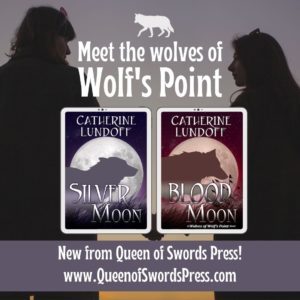Cat Rambo's Blog, page 10
April 14, 2021
Flash Fiction: A Horrific Homage to the Seattle Kraken
 Start the clock! Release the kraken! Let the hockey players sharpen their blades, let the audience stir restlessly and go one last time for popcorn and sodas and beer, glorious golden beer that tints the ice with its microbrewed haze.
Start the clock! Release the kraken! Let the hockey players sharpen their blades, let the audience stir restlessly and go one last time for popcorn and sodas and beer, glorious golden beer that tints the ice with its microbrewed haze.
Because there is a haze tonight, that’s for sure, folks. Tonight Seattle’s surrendered to the supernatural forces that have been creeping up like uninvited shoggoths in recent years. The world’s gone weird and wacky, and why not krakens, why not tentacles spilling out from the Space Needle, infesting the sky? It’s Seattle, after all; it’s raining so it’s not like they block out the sun.
Who’d have dreamed that magic and hockey would mix this way, a mash-up made of bloody sticks and smashed spell bottles? Seattle’s wizards have come out of hiding for this game, emerged from their lairs in Greenlake and Mercer Island, driven their Teslas over to park in interdimensional folds where they won’t get scratched like normal cars.
Only an hour’s worth of game, and then the magic runs out, deflates like a sodden pumpkin, milked for all that tentacle and terror juice. Will it be enough to keep Seattle entertained for another evening, keep it from imploding like Scherezade in reverse into ennui and coffee beans? Cities don’t resort to supernatural hockey games until they’re really in extremis and no one is really sure what this one will – or even can — achieve, given a world of murder hornets and sapient bananas and well, you remember the last few months as well as I do, particularly what happened to the butterflies.
The clock’s ticking. The skaters are moving back and forth over the ice, and things are stirring in the depths underneath it, things that will fuck a Zamboni up and shred ice like tissue paper. That’s how close the danger is to us all. That’s how dire things are.
Let’s stop now, before another spray of ice goes up, before another player gets a bloody nose and melts the ice with that, so things can crawl through from another dimension. It’s not too late. Where’s the entrance? Where’s the exit? Why does this ice hold me so fast?
April 12, 2021
Guest Post: We need to talk about the lack of realistic character response to sexual violence in Sci&Fi and Fantasy by Sammy HK Smith
We can do better.
I spend my working week with both survivors and perpetrators of physical and sexual abuse, and consider myself privileged that these survivors trust in me to help them, and I’m dedicated in bringing the perpetrators to justice.
Leaving that behind at the end of the working day is tough, and I often find myself reaching to fiction to shut off and ‘decompress’. Often though, my work finds me in literature and I despair.
We’ve all read those stories: characters beaten, raped, sexually assaulted and they often rise from the ashes stronger and resolute, or they become a broken husk. The sexual assault is often used as a plot element (or, dare I say it, trope) to move the main narrative forward but seldom given the actual scrutiny it deserves. Often too, the abuse is used to push forward a ‘revenge’ plotline or used as a reason as to why that person is ‘weird/broken/*insert derogatory descriptor here*’ and told from the point of view of an outsider with no empathy or understanding as to what they have gone through – a character backstory used to explain or excuse actions rather than feeding into the story.
Rarely do we hear the stories of those who are just trying to live with what has happened. Those with PTSD who are still healing. Those who can’t get justice or revenge or those who, for a myriad of reasons, choose not to, but still have to live with the consequences of what happened. Those who are still adapting to the changes forced on them, or the trauma that they have to live with every day.
Sexual violence is prevalent in both fiction and reality (1)(2), and while I’m grateful we have the #MeToo movement and increased visibility and voices in reality, we have a long way to go in addressing the long-term effects of sexual violence on a person. PTSD in sexual abuse survivors is also higher than the average population (3).
It is unfair of me to point fingers at books that get sexual violence ‘wrong’ or use it as a titillating teaser, so instead I’m going to share two books in the SF&F genre with realistic survivor reactions and ongoing PTSD/abuse aftermath that I really recommend.
DEERSKIN by Robin McKinley
As Princess Lissla Lissar reaches womanhood, it is clear to all the kingdom that in her beauty she is the image of her dead mother, the queen. But this likeness forces her to flee from her father’s lust and madness; and in the pain and horror of that flight she forgets who she is and what it is she flees from: forgets almost everything but the love and loyalty of her dog, Ash, who accompanies her. But a chance encounter on the road leads to a job in another king’s kennels, where the prince finds himself falling in love with the new kennel maid . . . and one day he tells her of a princess named Lissla Lissar, who had a dog named Ash.
The main character is sexually abused by her father near the beginning of the book, and the story shows her wrestling with this experience and learning to heal at her pace and in her own way.
A fantastic story with a clear message. You can survive sexual abuse. It will change you forever, but you can live despite that.
TENDER MORSELS by Margo Lanagan
Tender Morsels is a dark and vivid story, set in two worlds and worrying at the border between them. Liga lives modestly in her own personal heaven, a world given to her in exchange for her earthly life. Her two daughters grow up in this soft place, protected from the violence that once harmed their mother. But the real world cannot be denied forever—magicked men and wild bears break down the borders of Liga’s refuge. Now, having known Heaven, how will these three women survive in a world where beauty and brutality lie side by side?
A mix of fairy tale and fantasy, but most definitely for adults, this novel explores Liga’s childhood and abuse at the hands of her father. It shows us rape, miscarriages, pregnancy and how Liga becomes an incredible mother, overcoming the violence of the children’s conceptions. Have I included spoilers? Not really. Her journey is the story. Harrowing, but wonderful in the way the prose gives us hope even through unrelenting darkness.
Both of these show childhood trauma and sexual abuse, which can be very different to adult sexual abuse (and, to a certain extent, domestic abuse). I really tried to think of some good, solid stories that focused on an adult journeying through sexual violence PTSD but came up short. Recommendations warmly received!
When writing ANNA I wanted to not only tell the story of a victim who struggles to deal with PTSD while rebuilding relationships, but also show how the behavior and persona of a perpetrator changes with their audience, and how those who have been coercively controlled can still bend to their abuser, even months after the event.
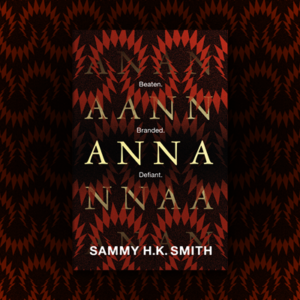 ANNA is not a milquetoast trope of a victim. She is broken, beaten, abused, carrying her scars and trauma around with her, never letting her guard down. She struggles as survivors struggle every day, second-guessing everything and everyone but desperately yearning for a sense of normality. Through all of that she is strong, and she shows us her strength as the story progresses.
ANNA is not a milquetoast trope of a victim. She is broken, beaten, abused, carrying her scars and trauma around with her, never letting her guard down. She struggles as survivors struggle every day, second-guessing everything and everyone but desperately yearning for a sense of normality. Through all of that she is strong, and she shows us her strength as the story progresses.
As a writer and a feminist I think it’s important to show a different view of survivors of sexual abuse in literature. I wanted to show her decision-making, her thought process and agency through those dark times and hopefully take the reader on the highs and lows of her recovery.
I’ve been asked why I didn’t make the novel a contemporary piece. Honestly? I love speculative and dystopian fiction. I didn’t want to write in the here and now when I work with this subject matter so often.
I stress that I’m no psychologist. I have a vested personal and professional interest in this area, and have followed and relied on experts in the field (4) to help form my characters and stories. It is not my place to tell a reader how a survivor will react to such trauma; every person is unique, their story and experiences different. My experience of something does not make me the arbitrator of all the possible responses and reactions, but I hope that what I have shown is that sexual abuse is not a trope. It is not glib, it is not something to use to merely push a story forward and add a ‘grim’ slant to a novel. It is harrowing and often the survivor is alone, even when surrounded by people who love them, with a long journey to recovery.
But the journey of a survivor is not all doom and gloom. There is hope. There are moments of love, of pure happiness and joy, of friendship and trust, but it’s not easy. Strength comes in many forms.
ANNA is a book that stands witness to the experiences of so many survivors and although that makes it an uncomfortable read at times, it is an offering to and reflection of the people who struggle with these issues.
I refuse to make a spectacle of sexual trauma, and I hope that I’ve done justice to the hundreds of survivors I’ve spoken with during my 15 years in the field of domestic and sexual abuse.
I said that we can do better, but when we see how the world really is, we know deep down that we must do better.
https://www.rainn.org/statistics/victims-sexual-violencehttps://rapecrisis.org.uk/get-informed/about-sexual-violence/statistics-sexual-violence/https://www.ncbi.nlm.nih.gov/pmc/articles/PMC2323517/http://www.zoelodrick.co.uk/training/article-1BIO: Sammy H.K Smith lives and works in Oxfordshire UK as a police detective. When not working she spends time with her children, husband and pets, renovates her house, and inadvertently kills plants. A keen writer and lover of all things science fiction and fantasy, she’s often found balancing a book, a laptop, a child, and a cat whilst watching Netflix.
Learn more about Anna and buy the book here.
If you’re an author or other fantasy and science fiction creative, and want to do a guest blog post, please check out the guest blog post guidelines. Or if you’re looking for community from other F&SF writers, sign up for the Rambo Academy for Wayward Writers Critclub!
March 16, 2021
Where I’ll “Be” – Flights of Foundry 2021
Find information about the event here.
Friday, April 16 6 PM Pacific time
How to Put a Game in Your Fiction
Moderator – Panelists are P.H. Lee, Erin Roberts, and Gregory Wilson
Saturday, April 17, 9 AM Pacific time – Reading from Exiles of Tabat
Saturday, April 17, 12 PM Patron/student/mentee lunch – Zoom link will be posted on Discord and Patreon
Saturday, April 17, 2 PM Pacific time – cowriting session – Come write with me!
Sunday, April 18, 11 AM Pacific time – teaching Writing Your Way Into Your Novel
March 15, 2021
Where I’ll “Be” – Norwescon 2021 Schedule
Thursday
NWW Critique Session with Cat Rambo
8:00am – 12:00pm @ Zoom 1
Cat Rambo (M), Barth Anderson
Friday
Building Diverse Worlds in Sci-fi and Fantasy
11:00am – 12:00pm @ Maxis
Cat Rambo (M), Suyi Davies Okungbowa, Jacqueline Carey, Curtis C. Chen
Reading: Cat Rambo
4:00pm – 4:30pm @ Cascade
Cat Rambo (M)
SFWA: Science Fiction and Fantasy Writers of America
6:00pm – 7:00pm @ Poolside
Curtis C. Chen (M), Cat Rambo
Saturday
Norwescon Breakfast 9:30 AM
Open to mentees, students, and Patreon patrons
Zoom link will be posted on Patreon and Discord
The Creation, Care, & Feeding of Writing Groups
2:00pm – 3:00pm @ Fishbowl
Cat Rambo (M), Tex Thompson, Sonja Thomas, Rhiannon Held
Why Do I Keep Getting Form Rejections on Short Stories?
4:00pm – 5:00pm @ Mt. Baker
Cat Rambo (M), K.G. Anderson, Tod McCoy, Jack Skillingstead
Guest Post: Magical Crones and Adventuring Mothers by Catherine Lundoff
When I first began working on a story about women who turned into werewolves as they entered menopause way back in 2009 or so, there was not a whole lot of representation of middle-aged and older women to be found in science fiction, fantasy, or horror. I mean, there were the evil middle-aged queens with talking mirrors, out to poison their younger, prettier rivals and the ancient witches who popped up to do terrible things or sometimes, provide directions, as the case may be. But, with rare exceptions, they were never protagonists, and they were seldom more than cardboard embodiments of evil or just plain window dressing.
Around 2010, that started to change. A bunch of other things happened around then too, including a huge growth in ebook publishing by indie authors and indie publishers which brought in a lot of voices that were not previously being heard from in more mainstream science fiction, fantasy, or horror. Along with that came writers willing to take risks, to tell new stories, to tackle things like representation that had been pretty sparse up until then. Those writers included women who were middle-aged and beyond looking to see themselves and their stories in the pages of the genres they loved.
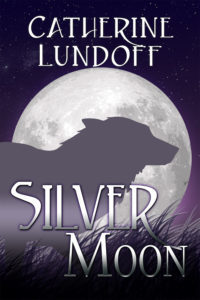 Amongst those writers was yours truly. As I entered middle age myself, I wanted to see more protagonists that were dealing with the same issues around aging that I was dealing with and still having adventures along the way. Entering middle age often brings with it some big physical and psychological changes, as well as the potential for having one’s traditional social roles (perceived desirability and childbearing, for example) reduced. Menopause is either ignored or treated like a medical condition, and middle-aged women who are still interested in sex are often treated as a punchline to a joke. Quite a bit of this is culturally specific to Western culture as we practice it in the U.S., but that also makes it pretty pervasive.
Amongst those writers was yours truly. As I entered middle age myself, I wanted to see more protagonists that were dealing with the same issues around aging that I was dealing with and still having adventures along the way. Entering middle age often brings with it some big physical and psychological changes, as well as the potential for having one’s traditional social roles (perceived desirability and childbearing, for example) reduced. Menopause is either ignored or treated like a medical condition, and middle-aged women who are still interested in sex are often treated as a punchline to a joke. Quite a bit of this is culturally specific to Western culture as we practice it in the U.S., but that also makes it pretty pervasive.
Inspired by a write-up that I found on a medical site for “symptoms” of menopause (“Unexpected hair growth! Mood swings! Receding gums which make your teeth look longer!”) I embarked on what was originally a novella about a woman who discovers that when she turns fifty, she also turns into a werewolf. She also develops a crush on her next-door neighbor and finds a whole new community of local werewolves, all middle-aged and elderly women, and confronts the people out to destroy her newfound family. After getting a lot of positive feedback for the idea, the novella was followed by the first novel, Silver Moon, and now, the second one, Blood Moon. Some of the themes and issues that I tackle in the Wolves of Wolf’s Point series include coming out at midlife, the physical and psychological experiences of menopause, a magical system that values older women and ways to combat the isolation that can impact women as they age. Also: werewolves, because they’re cool.
Silver Moon originally came out in 2012 (it was reissued by Queen of Swords Press in 2017), joining a small list of novels and stories with female protagonists forty and older in sf and f. These included Paladin of Souls by Lois McMaster Bujold (2003), a fantasy that sends a middle-aged noblewoman on a quest, and Remnant Population (2003) by Elizabeth Moon, which is a first contact novel featuring an eighty-year-old human colonist as the protagonist. There were also Nancy Springer’s middle-aged ladies of the fantastic featured in such titles as Fair Peril (1996), Larque on the Wing (1994), and Plumage (2000). Yūya Satō’s Dendera (2009) is about a group of elderly Japanese women banding together to fight a supernatural bear, and most popular of all, Terry Pratchett’s Discworld witches, which were first featured in Equal Rites (1987) and Wyrd Sisters (1988).
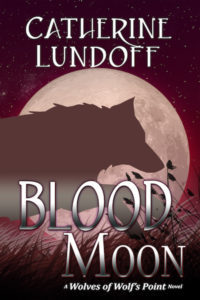 Armed with the knowledge that there might be more stories out there, I went looking. I started a bibliography of the stories I found featuring science fiction, fantasy, and horror tales with female protagonists over 40 where I listed everything I knew about (10 books and/or stories) and then I asked for suggestions. And it turned out that I wasn’t the only one looking for more older women in speculative fiction. Suggestions trickled in and I checked them out and added them if they seemed like a good fit. The two biggest reasons for not adding a title were unspecified age (character felt “older”) and a misinterpretation of what a “protagonist” was. Middle-aged and older women apparently occupy an outsized role on the fictional page, such that even a walk-on and a couple of lines is as good as being a major player for some readers.
Armed with the knowledge that there might be more stories out there, I went looking. I started a bibliography of the stories I found featuring science fiction, fantasy, and horror tales with female protagonists over 40 where I listed everything I knew about (10 books and/or stories) and then I asked for suggestions. And it turned out that I wasn’t the only one looking for more older women in speculative fiction. Suggestions trickled in and I checked them out and added them if they seemed like a good fit. The two biggest reasons for not adding a title were unspecified age (character felt “older”) and a misinterpretation of what a “protagonist” was. Middle-aged and older women apparently occupy an outsized role on the fictional page, such that even a walk-on and a couple of lines is as good as being a major player for some readers.
After the initial growth spurt, there were new and rediscovered works popping up every time I asked for suggestions. A nice fan I met at Helsinki Worldcon offered to create a Goodreads list, and things took off from there. The list has taken on a life of its own as people add books and readers discover it.
But apart from the obvious interest in the topic, there still remains the question of how broad and deep the representation these books and stories provide. There are, for example, still not many characters who are women of color and even fewer who are written by writers of color. There are some queer women, but not many. A list of trans women who are also elders in spec fic and protagonists, while longer than it would have been a couple of years ago, is still very short. Representation of aged characters is also full of magical and technological “cures” and other miracles.
There have also been some challenges making readers aware that the books and stories that do exist are out there. I, and now we, have been adding to and publicizing these lists for years and yet every six months or so, I encounter a post or commentary somewhere online to the effect that there are almost no older women featured as protagonists in sf and f. This is invariably followed by people suggesting the same five or six books, many of whom are amazed that there are many more stories than they thought out there.
As writers in the field age, their characters often age with them (sometimes subconsciously), so I think that we will see more of these stories in the future. Add to that the works that we have not yet discovered and included, particularly those from outside the U.S., perhaps not originally written in English, and there is fertile ground for exploring older women as central characters in speculative fiction.
 Bio: Catherine Lundoff is the publisher at Queen of Swords Press, a Minneapolis-based small press focused on fiction from out of this world. Queen of Swords publishes work by A.J. Fitzwater, Alex Acks, Catherine’s own work and that of other authors. Catherine is also an award-winning writer and editor who works in IT and lives with her wife and their kitty overlords. Her books include the Wolves of Wolf’s Point series, Silver Moon and Blood Moon, Out of This World: Queer Speculative Fiction Stories and Unfinished Business: Tales of the Dark Fantastic and as editor, Scourge of the Seas of Time (and Space). She is the author of over 100 published short stories and essays which have appeared in such venues as Fireside Magazine, Nightmare Magazine, the SFWA Blog, Sherlock Holmes and the Occult Detectives, American Monsters Part 2 and World of Darkness anthologies Haunting Shadows, The Cainite Conspiracies and Ghosthunters. She teaches writing classes at the Rambo Academy and Springboard for the Arts.
Bio: Catherine Lundoff is the publisher at Queen of Swords Press, a Minneapolis-based small press focused on fiction from out of this world. Queen of Swords publishes work by A.J. Fitzwater, Alex Acks, Catherine’s own work and that of other authors. Catherine is also an award-winning writer and editor who works in IT and lives with her wife and their kitty overlords. Her books include the Wolves of Wolf’s Point series, Silver Moon and Blood Moon, Out of This World: Queer Speculative Fiction Stories and Unfinished Business: Tales of the Dark Fantastic and as editor, Scourge of the Seas of Time (and Space). She is the author of over 100 published short stories and essays which have appeared in such venues as Fireside Magazine, Nightmare Magazine, the SFWA Blog, Sherlock Holmes and the Occult Detectives, American Monsters Part 2 and World of Darkness anthologies Haunting Shadows, The Cainite Conspiracies and Ghosthunters. She teaches writing classes at the Rambo Academy and Springboard for the Arts.
Websites: www.catherinelundoff.net and www.queenofswordspress.com
If you’re an author or other fantasy and science fiction creative, and want to do a guest blog post, please check out the guest blog post guidelines. Or if you’re looking for community from other F&SF writers, sign up for the Rambo Academy for Wayward Writers Critclub!
March 13, 2021
Writers and Guilt
Writers are so good at beating themselves up for all sorts of reasons, some valid, some not so much. Here’s some encouragement for dealing with writerly quilt.
March 10, 2021
Guest Post: Finding Your Heroes and Yourself by Elle E. Ire
Threadbare, the first novel in my Storm Fronts series, gets a mass market edition and hits physical bookstores this month. It’s the realization of a lifelong dream, to see my work on an actual shelf in an actual store, to pull it from the others and turn it face out so everyone can see this thing I’ve created. Every time I walk into a Books-A-Million or a Barnes & Noble or some wonderful independent bookseller, I’ve imagined being able to point at a novel’s spine with my own name on it and say, “Look at this! I made this! I’m the person whose name is on this cover!”
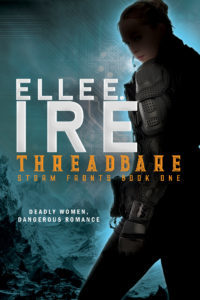 And with this moment fast approaching, I’ve been doing a lot of thinking about the influences on my work and how Threadbare and the other novels in the series came to be, and specifically all the pieces and parts that went into the protagonist, Vick Corren. Vick is a lot of kickass and a lot of emotional hot mess with some identity crises and self-esteem issues thrown in for good measure. Add in her bisexuality and there weren’t a lot of characters I could draw from as templates, at least not when I was growing up.
And with this moment fast approaching, I’ve been doing a lot of thinking about the influences on my work and how Threadbare and the other novels in the series came to be, and specifically all the pieces and parts that went into the protagonist, Vick Corren. Vick is a lot of kickass and a lot of emotional hot mess with some identity crises and self-esteem issues thrown in for good measure. Add in her bisexuality and there weren’t a lot of characters I could draw from as templates, at least not when I was growing up.
I’m dating myself, but when I was a preteen and teenager, finding strong female role models was a challenge, and finding ones who weren’t heterosexual much more so. There were competent, intelligent, accomplished women on TV, but they generally weren’t the leads. So the rare shows like The Bionic Woman and Wonder Woman were eye-opening. And when Princess Leia snatched the blaster away from Han Solo during her own rescue and got all of them out of that Death Star corridor by blowing a hole in the trash chute and demanding that Han get inside, well, I knew I wanted to write women just like that—women who could rescue themselves, with some help on occasion, but still, women who acted rather than reacted, women who didn’t sit around helplessly awaiting the hero but rather women who were the heroes.
This was where my character, Vick Corren, got her roots. If you read Threadbare you will absolutely see the influence of Jamie Sommers and Leia Organa. Vick has an AI in her head, a sentient computer that makes her stronger, faster, and a lot more resourceful than the average human, much like Sommers’s bionics. But she’s also got Leia’s attitude. Don’t mess with Vick. She’s definitely no-nonsense.
However, I also wanted her to have a softer side. It’s important to me that my characters not seem too impervious, too perfect, too invulnerable. Vick might look like she has it all together when she’s on a mission for her organization of mercenary soldiers, but when the battle ends, when the action stops, when she starts having feelings for someone beyond friendship, she’s just as insecure and confused as anyone heading into their first real romance.
Who could I draw from for those character traits? Well, Leia again, for one. Her resistance to (and inevitable falling for) Han Solo are still some of my favorite scenes to watch over and over again. Battlestar Galactica had some wonderful episodes in which Athena and Cassiopeia put Starbuck in his place. (Yes, his. The original Starbuck was male—dating myself again.) And much like Leia, Colonel Wilma Deering of Buck Rogers fame was another great character displaying both professional competence and romantic insecurity, especially when it came to her relationship with Buck.
Not to say all my influences were from television and film. I was an avid reader from a very young age, and it didn’t take me long to gravitate to the female protagonists of books by Anne McCaffrey, Elizabeth Moon, and Tanya Huff, to name my favorites. These amazing authors showed me how to write characters who could be both strong and sensitive, not necessarily at the exact same time, but at just the right moments, with a balance of each.
And yet, Vick Corren still felt to me as if something was off.
I wrote an entire novel for her, Assassin’s Nightmare. It earned me my first agent representation, but don’t go looking for it in bookstores. It never sold. And I firmly believe the reason for this is that the character was trying to not only tell me something about herself, but teach me about my self as well. Vick Corren is bisexual. So am I.
It took me way too long to figure that out about both of us, but once I did, things really took off. I set Vick aside for a while and wrote my first published novel, Vicious Circle, featuring a bisexual female protagonist. By now, I’d discovered Xena: Warrior Princess, and that was a game changer. Here at last was a character who was obviously bisexual, whether the network executives wanted to state it openly or not. Here was a character with significant flaws striving to redeem herself and admit to herself that she was worthy of love. If you read Vicious Circle or Threadbare, you will definitely see that influence in both main characters. We even marketed Vicious Circle as “Xena: Warrior Princess in space with the subtext as the main text.”
Shortly thereafter, another major influence, author J.A. Pitts, and his Sarah Jane Beauhall series beginning with Black Blade Blues proved that a lesbian blacksmith protagonist for a series could sell to a major New York publisher. (There were probably others, but that’s the one I was aware of in 2010. Got recommendations for me to read? I’m all ears. Toss them in the comments!) With that discovery, I was ready to give Vick Corren another chance, and another novel—Threadbare. No, I didn’t crack New York publishing, but it’s out there in the world, one more book for women who share my orientation and interests to find themselves in, one more role model proving that women can lead adventures of their own.
Final thoughts? Whatever it is you want to write, write it. Listen to your heart. If you write from there, the emotions will come across on the page, and your writing will find its market. Keep hunting until you find your role models. Learn from those who have come before you, the ones who make you feel. And finally, if you can’t find what you’re looking for on bookstore shelves… go create it, so that your work will be there for the next reader who feels just like you.
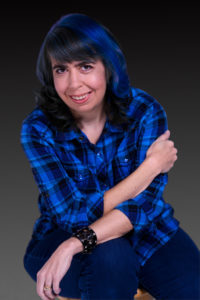 Bio: Elle Ire writes science fiction novels featuring kick-ass women who fall in love with each other. Her first novel, VICIOUS CIRCLE, released from Torquere Press in November, 2015, and was rereleased in January, 2020, by DSP Publications. Her second novel, THREADBARE, the first in the STORM FRONTS series, was released in August, 2019, by DSP Publications followed by the sequels PATCHWORK and WOVEN in 2020. Her work is represented by Naomi Davis at the Bookends Literary Agency.
Bio: Elle Ire writes science fiction novels featuring kick-ass women who fall in love with each other. Her first novel, VICIOUS CIRCLE, released from Torquere Press in November, 2015, and was rereleased in January, 2020, by DSP Publications. Her second novel, THREADBARE, the first in the STORM FRONTS series, was released in August, 2019, by DSP Publications followed by the sequels PATCHWORK and WOVEN in 2020. Her work is represented by Naomi Davis at the Bookends Literary Agency.
Chat with her on Twitter: https://twitter.com/ElleEIre or Facebook: https://www.facebook.com/ElleE.IreAuthor/
Learn more at her website: http://www.elleire.com.
If you’re an author or other fantasy and science fiction creative, and want to do a guest blog post, please check out the guest blog post guidelines. Or if you’re looking for community from other F&SF writers, sign up for the Rambo Academy for Wayward Writers Critclub!
March 8, 2021
February 26, 2021
Opinion: When Writers Punch – Up, Down, or Sideways
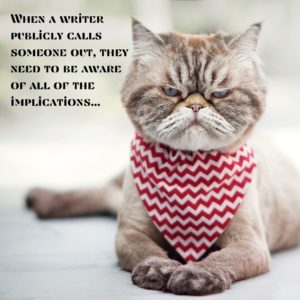 This is, I hope, my final followup to earlier pieces on reactions to Jason Sanford’s post identifying hate-speech and similar posts in a specific forum of Baen’s Bar, Politics, and the subsequent DisCon action in removing Baen’s leader, Toni Weisskopf, as an Editor Guest of Honor. I want to address a specific phenomenon, which is writers punching people who displease them via their readers, which has been directed at Jason Sanford.
This is, I hope, my final followup to earlier pieces on reactions to Jason Sanford’s post identifying hate-speech and similar posts in a specific forum of Baen’s Bar, Politics, and the subsequent DisCon action in removing Baen’s leader, Toni Weisskopf, as an Editor Guest of Honor. I want to address a specific phenomenon, which is writers punching people who displease them via their readers, which has been directed at Jason Sanford.
When a writer publicly calls someone out, they need to be aware of all of the implications, including the fact that the more popular the writer, the more devastating the results can be, not due to any intrinsic quality of the writer, but the number of fans. The more fans, the more likely it is that the group will contain people who, emboldened by the idea of pleasing a favorite writer, can — and will — go to lengths that go far beyond the norms of civil, and sometimes legal, behavior.
This played out recently with reactions to Jason Sanford’s piece on a specific forum within the Baen’s Bar discussion boards administered by Baen Publishing, which have included web posts doxxing Sanford and calling for complaints to be made to a lengthy list of people at Sanford’s placement of employment about the post he made on his free time on a platform that has nothing to do with his employment.
As I’ve said earlier, I have a great deal of respect for Baen and hope it emerges from this watershed moment in a way that suits the bigheartedness of its founder. But in the fray, a lot of writers have been egging their followers on to do shitty things in general, and what has emerged include the above specifics.
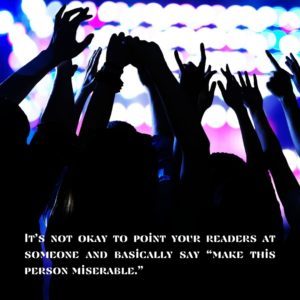 It’s not okay to point your readers at someone and basically say “make this person miserable.” It is okay to vote with one’s pocketbook. To not buy the books of people you don’t support. That is called a boycott, and it is an established tactic. (One of my consistent practices throughout the years, though, is to read a book by each one before I make that decision, so I know what I might be missing out on. So far, no regrets.) Going beyond that is, in my opinion, is the act of someone who’s gotten carried away and is no longer seeing their target as a fellow human being, and who needs to stop and think what they are doing.
It’s not okay to point your readers at someone and basically say “make this person miserable.” It is okay to vote with one’s pocketbook. To not buy the books of people you don’t support. That is called a boycott, and it is an established tactic. (One of my consistent practices throughout the years, though, is to read a book by each one before I make that decision, so I know what I might be missing out on. So far, no regrets.) Going beyond that is, in my opinion, is the act of someone who’s gotten carried away and is no longer seeing their target as a fellow human being, and who needs to stop and think what they are doing.
We have witnessed the results of this tactic when it happens in science fiction. Campaigns contacting employers to complain about posts made in someone’s free time, or even when they’re just suspected to be a particular blogger. People feel free to attack economically or via harassment, ignoring collateral damage in the form of their targets’ families. And let’s not forget SWATting or otherwise attempting to use the police against someone.
Someone started a baseless rumor about Sanford having had a book refused by Baen, and assorted unhinged souls have been running with that one in large and frenzied patterns that spell out “it is possible I am projecting” when seen from above, including repeatedly contacting the Ohio News Media Association to demand that Sanford stop beating his wife explain the allegations.
That one’s bizarre to the point of being more comical than serious, but there’s plenty worse, and that’s because of another phenomena. Free-floating online trolls cluster onto these situations like leeches, doing their best to drive people at best to shut down their social media, at worst to what those trolls see as an ultimate victory: suicide. They’re not in it for politics; they’re in it to feed on the festering hatred being stirred up and to use it as a justification for their own behavior.
I am not overstating things, and anyone who thinks that I am might want to go for a remedial course in Common Sense About the Way Shit is in 2021, as opposed to 40 years ago, which would be when I was first floating around on one of the first message boards. In all sorts of senses, I’ve continued to engage with the world rather than letting someone else moderate it for me, and I don’t know that I had a choice in that but have dealt with a lot of bullshit from people trying to up their visibility in one way or another. I’ve been doxxed so many times it’s lost any scare value. I learned to shoot a gun a couple of years ago because of one doofus sicking his followers on me, and in some situations I carry a taser in my bag. Given some of the stuff that’s happened, it’s not an overreaction.
A person should not have to go to these lengths in order to speak their mind; intimidation aimed at silencing someone overall, rather than a particular platform, is the true damage to free speech. I said it before and will say it again (and again and again, I suspect):
What “if you can’t stand the heat, get out of the kitchen,” aka “people who are too weak should avoid this discourse” says is “only certain people get to speak here.” And that’s shitty, no matter how many noble words you try to dress it up with.
In researching my first two pieces about Sanford’s report and the resultant furor, I talked to a number of people who’d been driven off the Baen discussion boards over the course of the last decade. The most prominent being Mercedes Lackey, who was dogpiled on after she suggested, post 9/11, that maybe unmitigated hatred for Muslims wasn’t the best approach. The posts driving her away came not just from the fans on the boards but some of her fellow authors. Beyond that, years later, someone on the boards decided justify her absence by claiming that she’d posted an anti-Jim Baen rant on there, which actually doesn’t seem to have occurred. Lackey says it didn’t happen and no one has actually been able to produce a copy of the rant, which seems to frolic like a beautiful unicorn in the Woods of Things That Never Were. (I am open to refutation on this, but did put some amount of time in trying to track it down.)
Lackey had a good bit to say on the subject, including an angle I hadn’t thought of, which is that it can be dangerous to your readers to be pointing them at people:
People these days are crazy. Seriously, dangerously crazy. Crazy enough to send SWAT to someone’s house over a video game (and people have died). Crazy enough to track down your boss and try to get you fired. Crazy enough to show up in person and hurt or kill you or someone you love over an online post. Don’t take my word for it, do a news search.
So suppose you unleash your fans on someone who is that crazy. And he doxxes some of them and SWATS them. At the least they have a broken down door and several hours of horror. At the worst, someone is dead. Or maybe he just tracks the harassment to its source and comes after you. And it’s you that gets SWATTED or fired or has the Drug Cops trashing your house looking to put you in jail.
(I snipped a paragraph here with points covered elsewhere in this piece. -Cat)
The very, very, very best answer to that impulse to send your hordes of minions out to do your bidding? Put your enemy in a story. You’ll get revenge, and better yet, get paid for it.
Lackey also pointed me at this excellent essay on tolerance which has, I think, good points about why groups — including communities formed around discussion groups — cannot contain members attacking other members:
We often forget (or ignore) that no right is absolute, because one person’s rights can conflict with another’s. This is why freedom of speech doesn’t protect extortion, and the right to bear arms doesn’t license armed robbery. Nor is this limited to rights involving the state; people can interfere with each other’s rights with no government involved, as when people use harassment to suppress other people’s speech. While both sides of that example say they are “exercising their free speech,” one of them is using their speech to prevent the other’s: these are not equivalent. The balance of rights has the structure of a peace treaty.
Much of the hoorah has led me to re-examine some beliefs just to make sure I wasn’t crazy, most notably my ideas about professionalism. Professionalism is something I’ve always tried to abide by. It involves a certain amount of dignity and detachedness, and it also requires not throwing verbal lumps of shit at people, particularly colleagues. I dunno, is this old-fashioned? It doesn’t mean not calling out bad behavior, it doesn’t mean I don’t often disagree with others. But I treat them with respect, overall, even when it’s hairy dude-bro looming at me to demand why I don’t do something about some matter that I have nothing to do with, because they are fellow human beings and we are all stuck here on spaceship Earth together.
 Being a bad passenger and using your fans to attack a fellow voyager is unprofessional. It gets you known for being unpleasant to work with in any form, because there’s always the worry you may turn it on the person the next seat over. You’re the person that has no qualms about waving live grenades; people don’t want to be around when they don’t know where you’re going to throw it, or even if you’re going to accidentally drop it.
Being a bad passenger and using your fans to attack a fellow voyager is unprofessional. It gets you known for being unpleasant to work with in any form, because there’s always the worry you may turn it on the person the next seat over. You’re the person that has no qualms about waving live grenades; people don’t want to be around when they don’t know where you’re going to throw it, or even if you’re going to accidentally drop it.
Perhaps a lot of the confusion between professionalism and being “authentic” has to do with the relationship between writers and social media, which can feel mandatory at times. Kacen Callendar notes:
It’s dehumanizing that I or any author should be afraid to speak about our dehumanization, about the boundaries we want and need to set for our health, dehumanizing that we should be scared our work won’t be accepted unless we play along with commodifying ourselves.
 When you know that any admission of weakness will be used against you by online trolls, that something like the death of a family member or pet will signal a new barrage of harassment playing on that grief, it becomes even more fraught. And those trolls go for the most vulnerable people — any vulnerability is like blood in the water to them. Can you be authentic and armor yourself at the same time? It takes some maneuvering and a certain amount of don’t-give-a-fuck-ery, and not everyone can do it.
When you know that any admission of weakness will be used against you by online trolls, that something like the death of a family member or pet will signal a new barrage of harassment playing on that grief, it becomes even more fraught. And those trolls go for the most vulnerable people — any vulnerability is like blood in the water to them. Can you be authentic and armor yourself at the same time? It takes some maneuvering and a certain amount of don’t-give-a-fuck-ery, and not everyone can do it.
Overall, should any writer cry “release the kraken!” and send these folks after a supposed “enemy”? No. No, and no amount of arguing will ever convince me otherwise. Instead, they should learn to be professional perhaps, because in this heated kitchen, we’re working chefs, not home cooks, and should comport ourselves with a little goddamn dignity.



